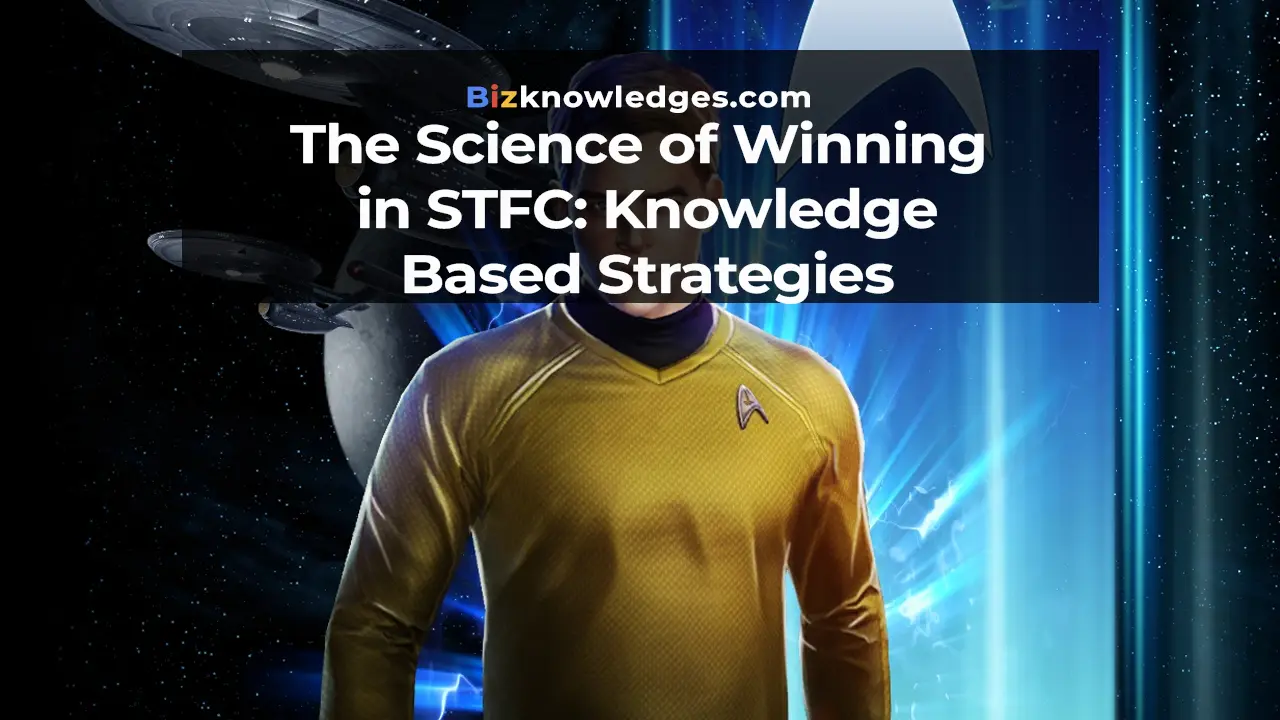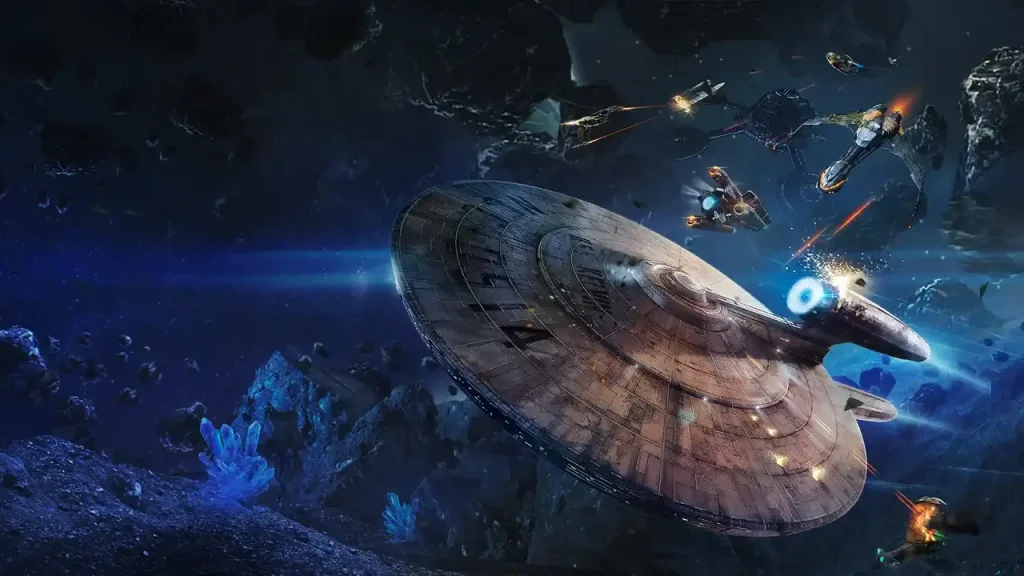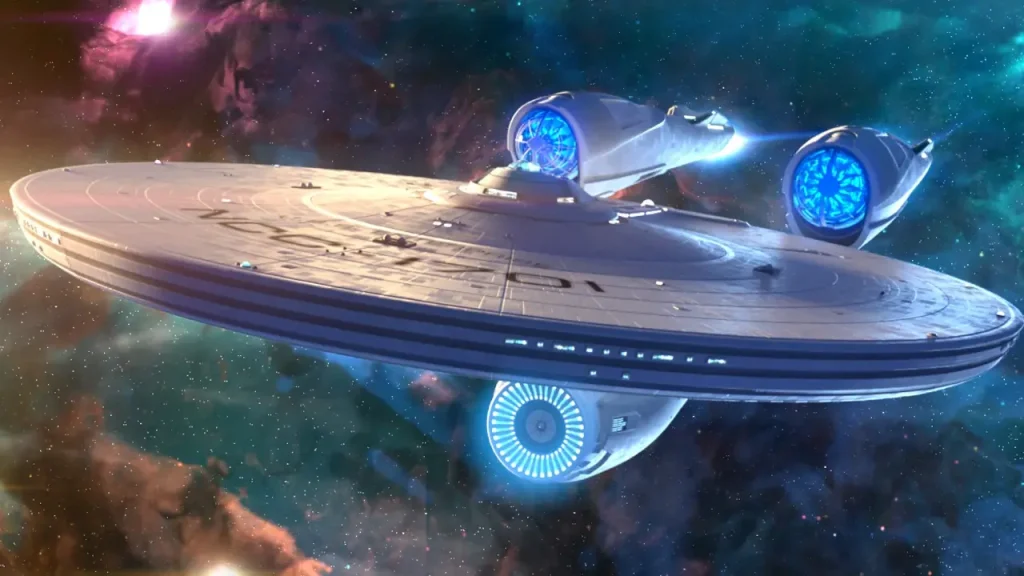The Science of Winning in STFC: Knowledge-Based Strategies

As I navigate the vast universe of Star Trek Fleet Command (STFC), I’ve discovered a profound truth: knowledge is not just a pathway to power—it’s a reward in its own right. In this game, understanding the complex relationships between factions, mastering resource management, and strategizing fleet deployments transforms players from mere participants into architects of their own destinies.
Every mission and exploration enriches my experience, teaching me that in the cosmos of STFC, the pursuit of knowledge is as thrilling as any starship battle. Join me as I explore how this game turns information into a gateway for endless possibilities.
Knowledge Is Its Own Reward STFC
In the vast expanse of space, where the stars stretch endlessly into the distance, there lies not just the promise of adventure but the pursuit of knowledge. The universe of Star Trek Fleet Command (STFC), an expansive mobile strategy game, beckons players not only to conquer new territories but to embrace learning as a profound reward.
At the heart of STFC is a complex system of gameplay mechanics, alliances, and conflicts, but beyond the tactical skirmishes and alliance politics, knowledge stands as the ultimate treasure. Here, every mission and exploration yields insights that extend beyond the game, influencing strategies and decision-making. The joy of discovery in STFC mirrors the age-old adage that knowledge is its own reward.
Players navigate through star systems, each filled with secrets waiting to be uncovered. The information gathered from these explorations fuels advancements in technology, ship upgrades, and, importantly, strategic acumen. The game does more than entertain; it educates, making the pursuit of knowledge an engaging, ever-evolving journey.
What truly makes STFC a bastion of learning is its community. Players exchange tips, strategies, and knowledge, fostering an environment where learning is as integral to success as any starship in your fleet. Thus, knowledge in STFC is not just a pathway to in-game advancement—it enriches the player’s experience, offering rewards that transcend the digital confines of the game.
The Importance of Knowledge in STFC
In the intricate universe of Star Trek Fleet Command, knowledge is not merely a tool—it is the lifeblood that fuels every aspect of gameplay. As players venture into this meticulously crafted cosmos, they quickly realize that the accumulation and application of knowledge are paramount to their success.
Understanding the game’s mechanics, from ship management to fleet coordination and resource allocation, forms the foundation of a commanding officer’s skill set. The more a player knows about the potential and limitations of their ships, the better they can strategize in battles and diplomatic engagements. Every piece of data, from the strength of a ship to the layout of star systems, can be the difference between victory and defeat.

Moreover, the game’s dynamic environment, influenced by the actions and decisions of thousands of players, creates a living, breathing galaxy. In such a context, staying updated on the latest developments within the game is crucial. Knowledge about recent updates, changes in alliance politics, or the emergence of new threats can provide a strategic edge.
The social aspect of STFC also underscores the importance of shared knowledge. Alliances, which are fundamental to progressing in the game, thrive on the collective intelligence of their members. Knowledge-sharing within these communities is not just recommended; it is essential for survival and growth. Workshops, shared tactical guides, and collaborative planning are all facets of the game’s knowledge culture.
The pursuit of knowledge in STFC thus mirrors the very essence of the Star Trek universe—where exploration, discovery, and understanding are held in the highest regard. It’s a game where intelligence and information are not just power—they are the pillars that support every decision, every alliance, and every conflict.
Learning from the STFC Community
The Star Trek Fleet Command community is a vibrant and diverse tapestry of players, ranging from casual gamers to deeply invested strategists. This community is not just a place for interaction but a dynamic classroom where knowledge is continuously exchanged, debated, and evolved.
For new players, the community serves as an invaluable resource for learning the ropes. Veteran players often take on mentorship roles, offering advice on everything from fleet composition to resource management. This guidance is crucial in helping newcomers navigate the early challenges of the game and in laying a solid foundation for their future endeavors.
Discussion forums, social media groups, and in-game chat channels are bustling with conversations that delve into the nuances of game mechanics and strategies. These discussions are often peppered with insights into effective tactics, updates on geopolitical shifts within the game, and forecasts about upcoming features or events. Such interactions not only enhance a player’s understanding but also foster a sense of camaraderie and shared purpose.
Beyond tactical and strategic learning, the STFC community also encourages players to engage in broader discussions about the themes of the Star Trek universe, such as ethics, philosophy, and science. This blend of in-game and meta-game conversations enriches the player’s experience, making participation in the community not just beneficial but also intellectually stimulating.
In-Game Knowledge Acquisition
Acquiring knowledge within Star Trek Fleet Command is an engaging process that captivates players, driving them to explore, interact, and experiment throughout their interstellar journey. The game cleverly integrates learning into every facet of its environment, making the acquisition of knowledge a core aspect of the gameplay experience.
One of the primary methods through which players gain knowledge is through exploration and missions. Each mission is designed not only to advance the storyline but also to introduce players to new concepts, technologies, and strategic dilemmas. As players traverse different star systems, they encounter various scenarios that require them to apply what they’ve learned in practical and often challenging ways.
Research and development within the game also play a critical role in knowledge acquisition. Players invest time and resources into researching new technologies and upgrades for their ships and bases. This process is incremental, reflecting real-world research and development, where knowledge is built gradually through study and experimentation. Each research project completed not only enhances a player’s capabilities but also deepens their understanding of the game’s complex mechanics.
Another key component of in-game knowledge acquisition is the strategic use of reconnaissance and espionage. Players can send scouts to gather intelligence on neighboring territories and opponents, gaining crucial insights that can inform their strategic decisions. This aspect of the game teaches players the importance of information in warfare and diplomacy, echoing the strategic practices seen in real-world conflicts.
The Role of Faction Knowledge in STFC
In Star Trek Fleet Command, understanding the intricacies of faction dynamics is essential for navigating the political and military landscape of the game. Faction knowledge isn’t just about knowing who the factions are but understanding their histories, their allies and adversaries, and their place within the broader narrative of the game. This knowledge significantly influences players’ strategic decisions and their diplomatic relations.

Factions in STFC are not just groups with different labels; they have unique cultures, objectives, and preferred strategies that reflect their philosophies and histories within the Star Trek universe. Players must choose their alliances wisely, as each faction offers distinct missions, rewards, and technological advancements. For instance, aligning with the Klingons might offer advanced offensive capabilities, while siding with the Federation could provide diplomatic benefits and defensive technologies.
Understanding faction relationships is critical for survival and advancement. Knowledge of the historical tensions and alliances between factions allows players to predict potential conflicts and opportunities for cooperation. Players can leverage this knowledge in negotiations, forming coalitions, or when planning to expand their influence into contested star systems.
Moreover, faction knowledge extends to understanding the specific requirements and rewards associated with faction loyalty. Engaging deeply with a particular faction’s missions can unlock specialized ships, unique officers, and advanced technology that are not available to other factions. This deep engagement also requires players to understand and sometimes adopt a faction’s ethos, making decisions that align with the faction’s values and long-term goals.
Thus, faction knowledge in STFC is more than just an optional aspect of gameplay; it is a pivotal component that can determine the power, reach, and survival of a player’s fleet. It encapsulates a strategic layer of gameplay where knowledge and diplomacy are as potent as the firepower of a starship.
Knowledge as a Tool for Non-Combat Success
In the universe of Star Trek Fleet Command, not all victories are won through battles and warfare. Knowledge serves as a powerful tool for achieving non-combat success, opening avenues for growth and influence that do not rely solely on military might. This aspect of the game highlights the diverse strategies players can employ, reflecting the multifaceted nature of space exploration and interstellar diplomacy.
Economic management is a critical area where knowledge can lead to significant non-combat victories. Understanding the complex economy of STFC, from resource generation and consumption to trade and logistics, allows players to optimize their resource flow, sustain their operations, and fund their expansions. Players who master the economic aspects can often outpace and outmaneuver their rivals without firing a single shot, by strategically managing their resources and engaging in profitable trade agreements.
Diplomacy is another critical arena where knowledge becomes a strategic asset. Knowledgeable players who understand the desires and fears of other factions and players can craft alliances and agreements that benefit their strategic objectives. Effective diplomacy can lead to access to critical resources, support in conflicts, or even avoiding war altogether. Players who excel in diplomatic strategies can influence the broader game environment and shape major political landscapes within STFC.
Furthermore, knowledge in STFC empowers players to engage in scientific discovery and technological innovation. By focusing on research and development, players can unlock advanced technologies that boost their economic, defensive, and diplomatic capabilities. This approach not only provides a competitive edge but also opens up new gameplay options that enhance the player’s influence and standing in the game without reliance on direct combat.
Conclusion
In the expansive and intricate universe of Star Trek Fleet Command (STFC), knowledge transcends its traditional role as mere information, becoming a profound cornerstone of gameplay. Whether it’s through the tactical deployment of fleets, the strategic management of resources, the delicate art of diplomacy, or the deep understanding of faction dynamics, knowledge in STFC is both a tool and a reward.
Players who engage deeply with the game’s systems, community, and narrative find themselves rewarded not just with in-game success but with a richer, more immersive experience. The game’s design encourages a continuous cycle of learning and application, where each piece of knowledge gained illuminates paths to both expected and surprising new challenges.The role of knowledge in STFC mirrors the broader themes of the Star Trek universe—exploration, cooperation, and understanding. It’s a game that not only entertains but also educates, fostering a community where shared knowledge uplifts all members. Through its gameplay, STFC celebrates the idea that knowledge itself is a valuable prize, worthy of pursuit for its own sake.
